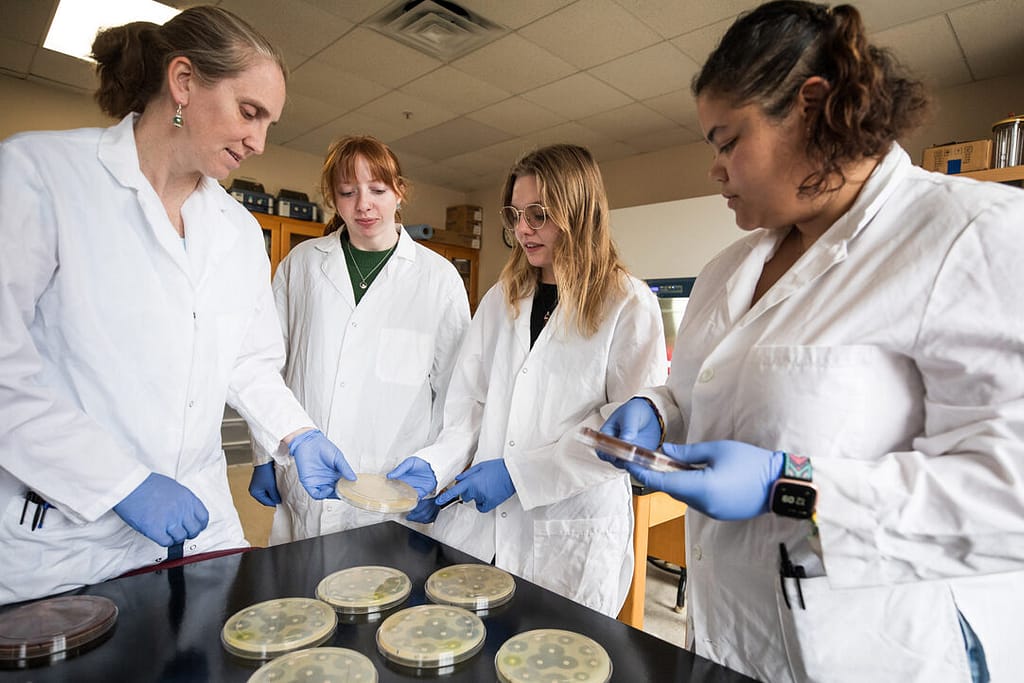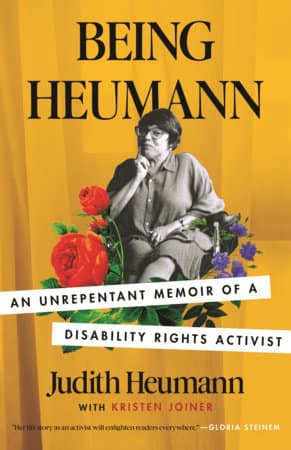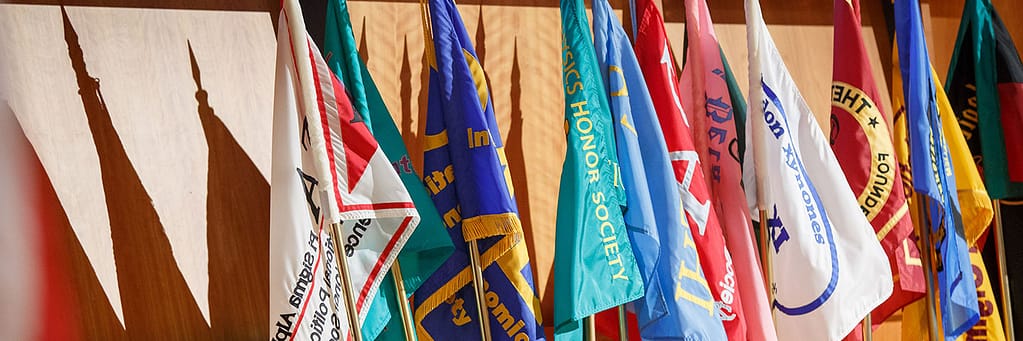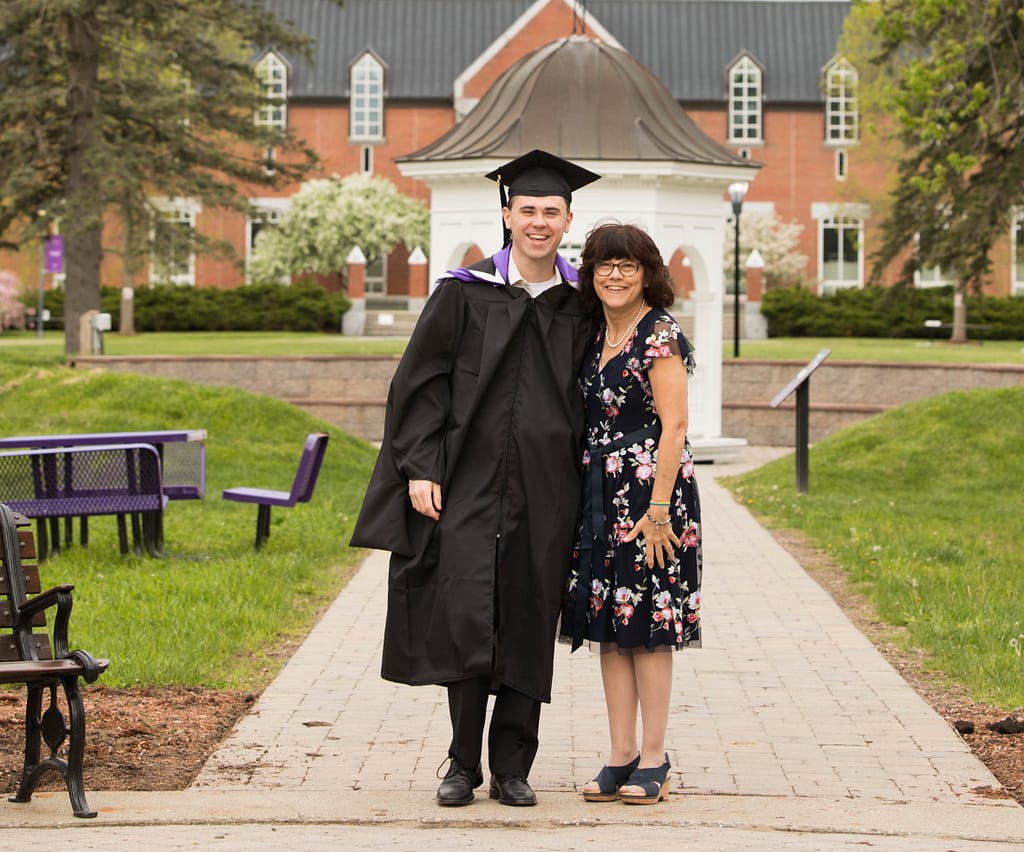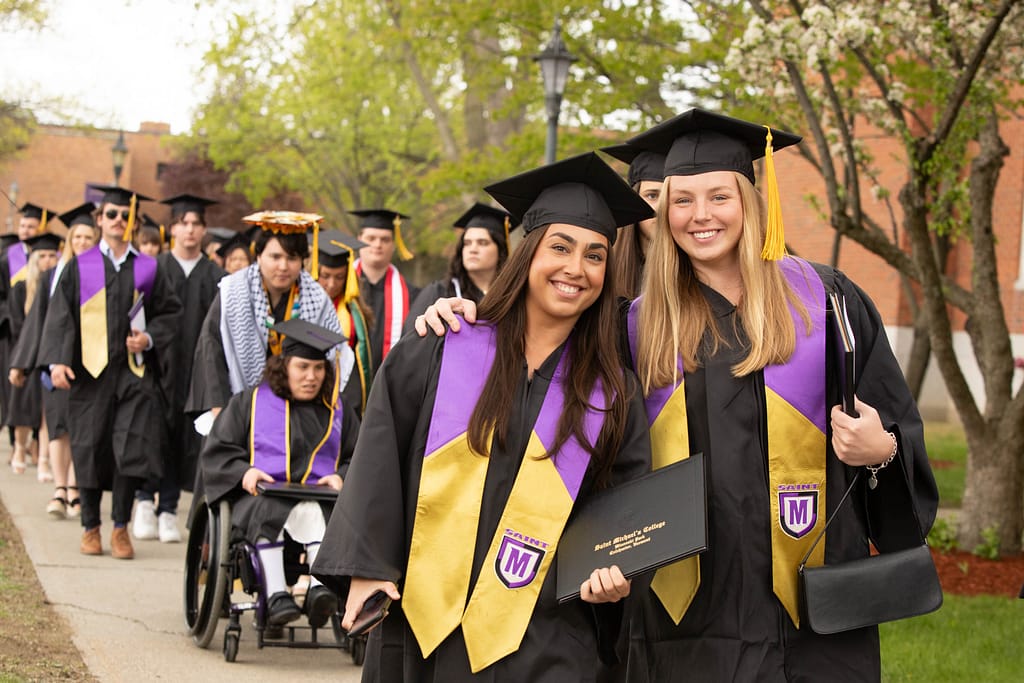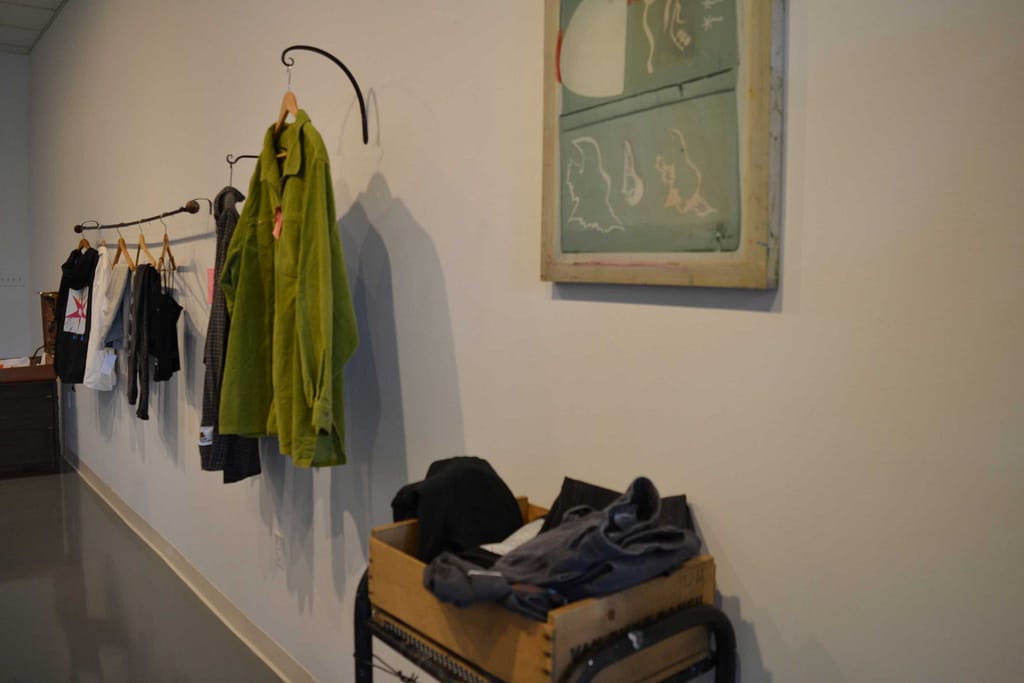Alum returns to share her career in higher ed’s Institutional Research
Dr. Kaiti Tuthill ’11 says her experience as a student at Saint Michael’s laid the groundwork for a successful career in higher education.
Tuthill came back to campus for a Mathematics and Statistics Colloquium on October 27 as the guest speaker. Tuthill now works as the Director of Assessment and Accreditation at Boston College’s Lynch School of Education and Human Development. She graduated from St. Mike’s with a double major in Mathematics and Economics and a minor in English.
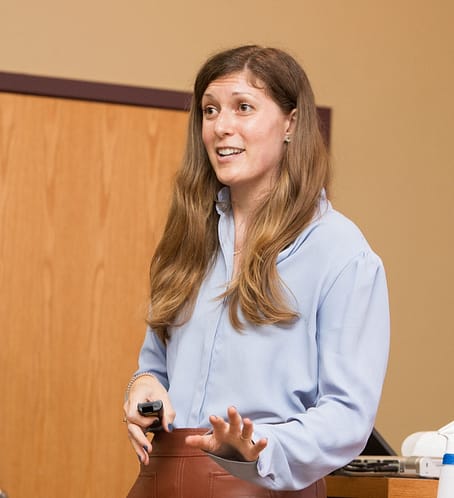
Kaiti Tuthill ’11 (Photo by Cat Cutillo)
During college, she played the oboe in the choir, studied abroad in Copenhagen and Denmark, undertook a research experience at Northern Arizona University, and was inducted as a member of the Mathematics Academic Honor Society Pi Mu Epsilon. In fact, she credits a Pi Mu Epsilon induction lecture for introducing her to the field of Institutional Research. She said the induction speaker matter-of-factly told the audience that if an employer was hiring for a position and had one applicant who was a math major and another who wasn’t, the math major would always have the upper hand.
That statement piqued Tuthill’s curiosity, and she wanted to find out if it could be proven. She asked the Saint Michael’s faculty where to begin her research and they referred her to the Office of Institutional Research at St. Mike’s, a place she’d never heard of.
“It turns out there’s one on every campus and they’re responsible for data about the college student experience and about the college as a whole,” Tuthill said.
Tuthill quickly learned that Institutional Research dealt with all the things she loved studying: data, statistics and mathematics. Tuthill knew immediately that she wanted to pursue it as a career. Plus, it was an opportunity to stay in higher education, an environment in which she thrived.
After graduation, Tuthill moved to Boston and worked for Harvard Business School as a faculty assistant in the Business, Government and the International Economy Department. While there, she was able to take graduate-level classes.
“It was really helpful for me to take a few years, get a feel for the real world and decide what I wanted to do next before continuing onto the PhD program,” Tuthill said.
After three years in the workforce— and plenty of counsel from her connections— she decided to apply to Boston College’s Measurement, Evaluation, Statistics and Assessment (MESA) Ph.D. Program. She said the math classes she took at St. Mike’s in linear algebra, probability and regression helped to prepare her the most.
“I have certainly kept using my math classes,” Tuthill said. “There’s a lot of data analysis, a lot of graphs. You’ll use your math classes again. I’ve used it throughout my career at work, in school. My title is not Mathematician but there’s still a lot of math in my life.”
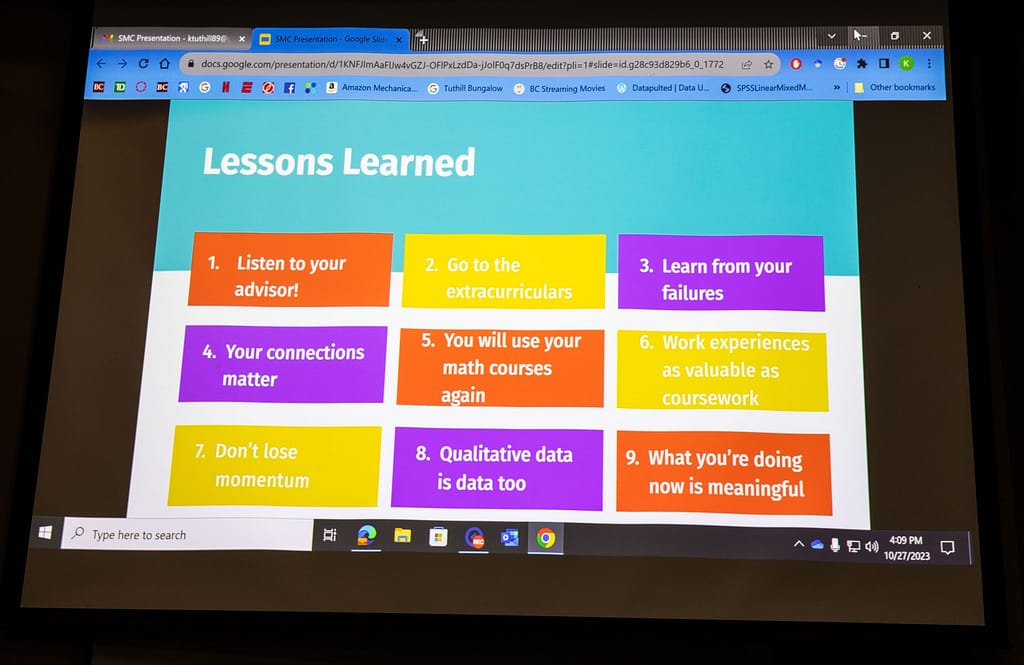
Tuthill’s lessons learned that she shared at the presentation (Photo by Cat Cutillo)
Tuthill started her position as the Director of Assessment and Accreditation at Boston College’s Lynch School of Education and Human Development while still writing her dissertation for her Ph.D. program. Her dissertation took her several years to complete while working full-time. It was entitled, The relationship between academic self-concept and academic achievement in college students: An examination of gender differences. In it, Tuthill examined the changes in academic self-concept over four years at an undergraduate institution.
Tuthill’s dissertation concluded that, “Someone who scores really highly on tests might then think highly of themselves academically. Vice versa, someone who thinks very highly of themselves academically might actually score better on a test.”
Her dissertation also looked at gender differences.
“In men, higher academic achievement was leading to higher academic confidence,” Tuthill said. “But for women, there was evidence of reciprocal affects where higher academic confidence was then leading to higher academic achievements.”
Her dissertation left her with a parting question: What levels would have been achieved by women had they had the same levels of confidence as their male counterparts?
At the end of her campus talk, Tuthill reflected back to her time at Saint Michael’s.
“I really think my dissertation was the type of question I learned to ask at St. Mike’s,” she said. “What I was doing the whole time was meaningful. All of my experiences culminated to get me there.”
